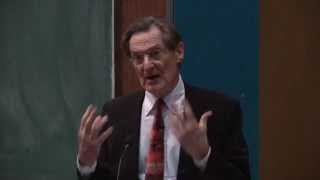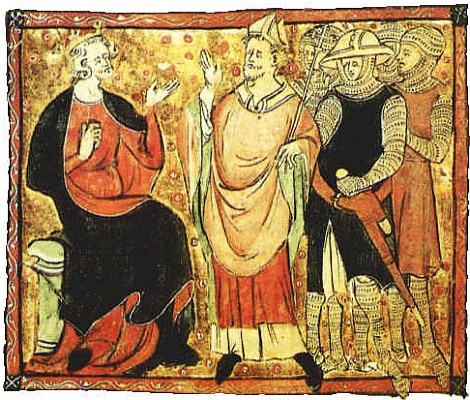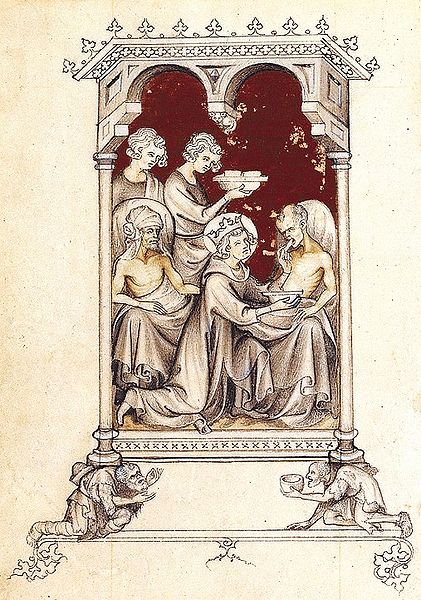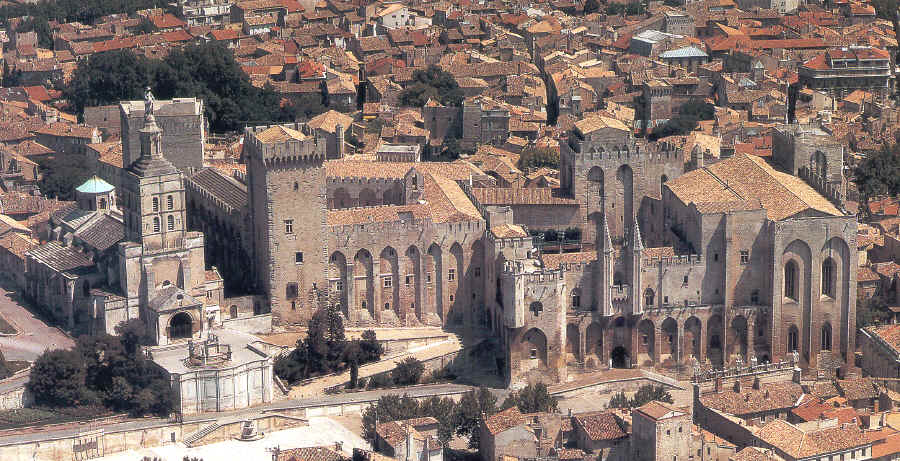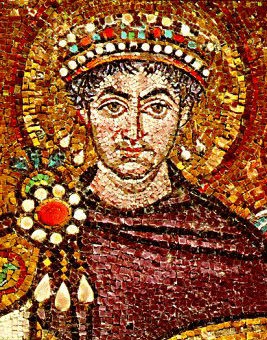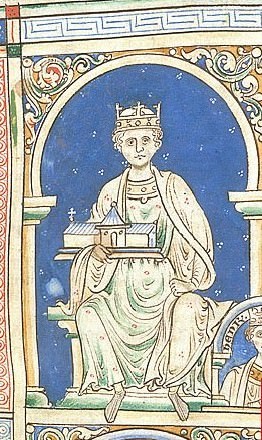Machiavelli: Theories on Liberty, Religion, and The Original Constitution
Machiavelli: Theories on Liberty, Religion, and The Original Constitution Erin Bos Oklahoma Christian University Journal of Historical Studies, Tau Sigma Journal of Historical Studies:…
How Machiavellian was Machiavelli?
Professor Quentin Skinner gave a public lecture at the University of York, on the occasion of the 500th anniversary of the composition of Niccolò Machiavelli’s The Prince.
Writing Away the Caliph: Political and Religious Legitimacy in Late Medieval Islamic Political Thought
In 632, the death of the Prophet Muhammad was met with confusion, as he died without naming a successor; nor did he leave a blueprint detailing how political rule should take shape after his death
Rule by Natural Reason: Late Medieval and early Renaissance conceptions of political corruption
This paper argues that, from about the eleventh century CE, a new and distinctive model of corruption accompanied the rediscovery and increased availability of a number of classical texts and ideals, particularly those of Cicero and the Roman Jurists.
Samuel and Saul in Medieval Political Thought
This article traces the history of a medieval struggle for supremacy between spiritual and temporal authority, between pope or church and monarch, following the employment of the aforementioned Old Testament narrative
Gilbert Foliot and the two swords : law and political theory in twelfth-century England
Considering the importance of the Church as a driving force in twelfth- century political history, the complex relationship between piety and Church involvement in lay politics during this time period remains surprisingly under-explored.
The Cult of Saint Louis and Capetian Interests in the Hours of Jeanne d’Evreux
Throughout the Middle Ages the Capetians labeled themselves as the ‘Most Christian of Kings,’ and to have a saint in the family legitimated their claim.
500-year-old arrest warrant for Machiavelli discovered
The original copy of a proclamation – exactly 500-years old – calling for the arrest of Niccolò Machiavelli has been discovered by a British historian.
Rome During Avignon: Myth, Memory, and Civic Identity in Fourteenth-Century Roman Politics
Broadly conceived, my dissertation examines the traditions of popular government emerging spasmodically in the roughly two hundred and fifty years between the Roman senate’s 1143 revival, and the papacy’s definitive 1377 return to Rome from roughly seven decades in Avignon. The majority of my inquiry, however, is directed toward the much-understudied fourteenth century.
Magna Carta: is it relevant today?
As the 800th anniversary of Magna Carta fast approaches in 2015, Professor Nigel Saul takes a look at its relevance to us today.
Narrative and political strategies at the deposition of Richard II
This paper is an attempt to examine the role of what might loosely be termed formal and informal political ideas in the coup d’e´tat which brought Henry IV to power in 1399.
Sovereignty and Territoriality: An Essay in Medieval Political Theory
To advance this task of conceptual clarification, my essay offers an excursus into medieval political theory. It argues that sovereignty, as the idea is used at present, has its genesis in a theological concept—it the notion of highest authority the archetype for which is God. But why invoke the medieval tradition to talk about all this?
Shakespeare’s Richard II: Machiavelli for the Good of England
The name Machiavelli has negative connotations, and this way of thinking is not new. Throughout Europe, in Shakespeare’s time and earlier, Machiavellianism was associated with unscrupulous abuse of power, and Machiavellian methods were seen as immoral and evil.
Imperial Ideology: The Idea of the Universal Christian Empire in Late Antiquity
This paper examines the evolution of Christian universalist ideologies from the year 300 AD to about 800 AD, with a focus on their development in the Eastern Roman (Byzantine) Empire.
The Doctrine of Active Resistance in the Sixteenth Century
This article will explore the late medieval sources and the sixteenth century context of Continental Reformation theologians’ response to that agony of conscience.
John Lydus’ Political Message and the Byzantine Image of the Ideal Ruler
What makes a great emperor? This was one of the questions addressed by John Lydus, a 6th century Byzantine administrator and writer, whose work On Powers examined the rule of previous Roman emperors.
Voting in the Medieval Papacy and Religious Orders
Medieval theologians no doubt believed that God’s word was handed down from above; but they well knew that they often had to decide among rival human interpretations of it.
Rome in the imperial idea of the 14th century: The age of emperor Lewis the Bavarian
The town of Rome has had a huge importance within the medieval world. Besides Jerusalem it has always been seen as one centre place in medieval philosophy.
Expectations of empire: some twelfth- and early thirteenth-century English views of what their kings could do
In this paper I shall try to see what the ways in which a number of twelfth- and early thirteenth-century English authors interpreted the past might reveal about their assumptions about the reach of the king’s government.
Reading Machiavelli Rhetorically: The Prince as Covert Critique of the Renaissance Prince
In this essay, classical rhetorical theory is applied to show that Machiavelli’s Prince was not intended as advice for a prince, nor as “political science,” but rather as a very subtle, but nevertheless powerful, critique of the Italian princes of his day, the Medici included.
Melchizedek as Exemplar for Kingship in Twelfth-Century Political Thought
The figure of Melchizedek, ‘king of Salem’ and ‘priest of God Most High’,was less prominently featured in political writings than Saul, David, Solo-mon, and other biblical rulers.
The Heritage of Polish Republicanism
In Polish political debates of half a millenium ago, monarchic ideas were always permeated with republicanism. In that period public discourse had civic virtue as its centerpiece.
Machiavelli on Christian Education
My primary point is not to vindicate Christian education as good for the well-being of cities but to complicate the assumptions of the civil religion approach by examining Machiavelli’s reflections on human character and psychology.
Codex Argenteus and political ideology in the Ostrogothic kingdom
One of the most intriguing manuscripts of late Antiquity, the early-6th – century Codex Argenteus, combines elements typical of lavish Greek and Latin bibles with yet another significant aspect.
Sovereign Subjects, Feudal Law, and the Writing of History
The early historiography of feudal law coalesced as the point of articulation for a discourse of time (the rejection/reclamation of a “barbaric” past) and a discourse of power (the theorization of the sovereign relation), and ultimately yielded a period concept foundational to “modern” theories of state.

